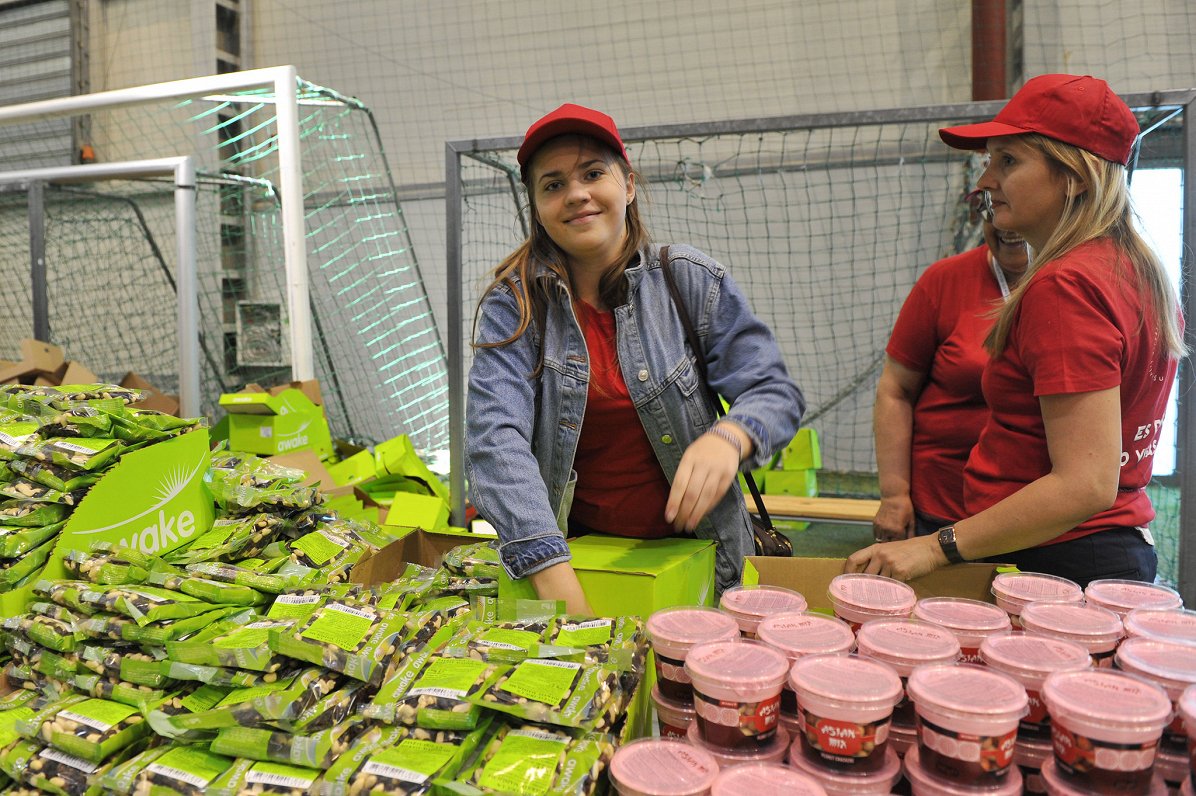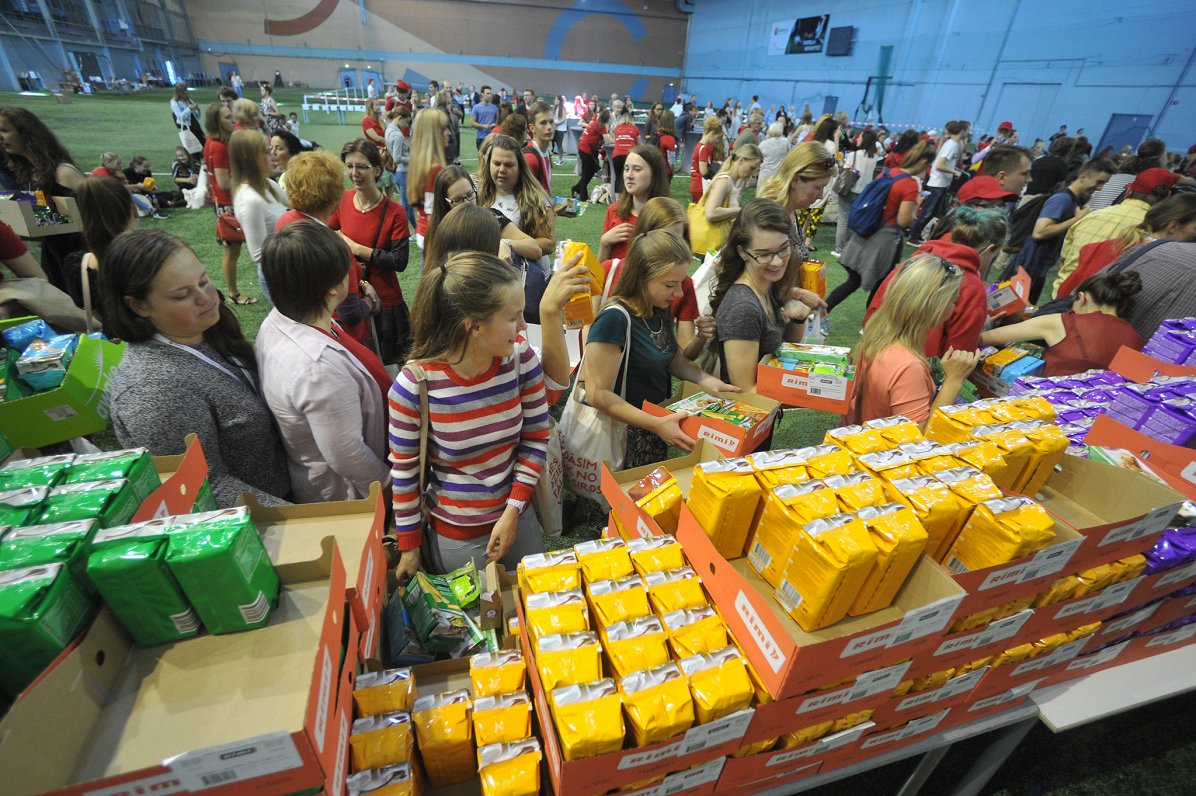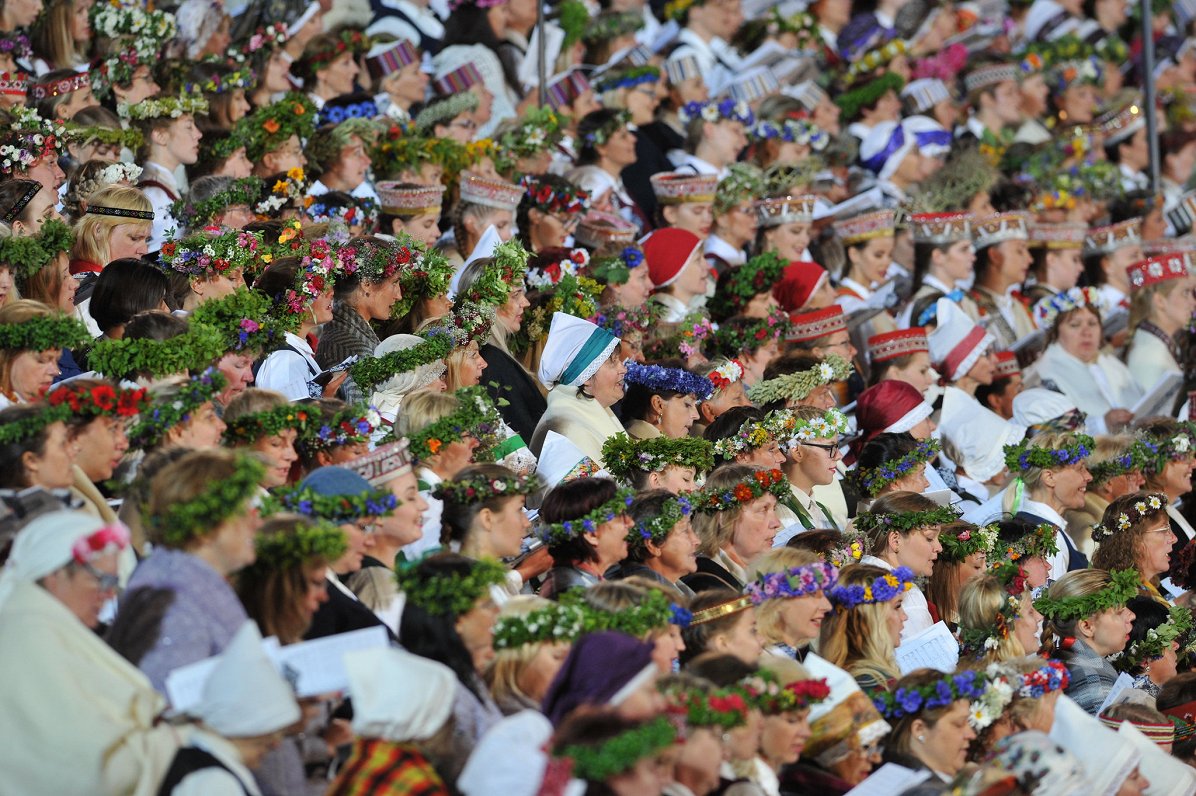Part of the package that comes with taking part is three courtesy meals per day to keep the singers, dancers and musicians jolly and energised. That's up to 27 meals per participant over the course of the festival's nine days, which amounts to a huge catering operation.
For the second time in the festival's history, a dedicated working group assembled to devise a menu fit to feed these musical masses. Until the 2018 festival, there was no unified menu, and participating caterers prepared meals independently of each other.
This year's menu is based on four principles – nutritional standards, food safety, caterers' resources and capacity, and sustainability. It had to factor in different caloric needs across age groups and genders, catering facilities, and intense schedules.

To tick all the boxes, this year's working group included members of the Food and Veterinary Service, Latvian Association of Diet and Nutrition Specialists, the Centre for Disease Prevention and Control, Union of Public Caterers, and the World Wildlife Fund, a food technologist, nutritionist and members of the festival organising team.
"As one of the main themes of the festival is sustainability and a more climate-friendly event, one of the most challenging tasks in the catering process is to reduce the amount of unused food during the festival," says Daina Markova, Executive Director of the Festival.
Set menus are one of the working group's solutions along with the option for participants to cancel meals in advance.
The multifaceted working group was also crucial in dealing with current challenges such as rising food costs, product shortages and lack of staff in the hospitality industry following the pandemic and in light of the geopolitical climate, explains Linda Ertmane, public relations manager for the Latvian National Centre for Culture, which oversees the festival.
This year, in a revolutionary turn of events, participants can choose a vegetarian menu as an alternative to the regular menu, which is generous in meat. On day one of the festival, for example, participants will be eating:
-
cornmeal porridge with sides for breakfast,
-
chicken gyros or beans with potatoes, mushroom sauce and a side salad for lunch,
-
plov with chicken or chickpeas, a gherkin, and a pastry for dessert.
Other dishes include muesli, curried chicken, vegetable soups and stews.
The lunch and dinner spread is similar to what you might find at a school, office or factory canteen. Since many participants are staying at 70 schools across Riga, that's where they'll have breakfast and some dinners, depending on the rehearsal and event schedule. Lunch and some of the dinners are served at 14 of the festival's larger venues, such as the Mežaparks Open-air stage, the Daugava Stadium and Rimi Olympic Centre.

“Enabling participants to eat on site significantly enhances their wellbeing – there's no rush to get back to their accommodation and less pressure on local traffic. It takes almost 700 buses to transport the participants coming from outside Riga,” Ertmane says, illustrating the unfathomable complexity of organising an event of this scale.
The total cost of feeding one participant per day adds up to 10.80 euros (plus VAT). Breakfast accounts for 30% of the caloric intake and 2.80 euros, lunch – 35% and 4.20 euros, and dinner – 35% and 3.80 euros. This is financed from the state budget as per the Law on the Song and Dance Festival.
The question of how to cater to other dietary requirements, like veganism and intolerances, remains open for future organisers to address.



























